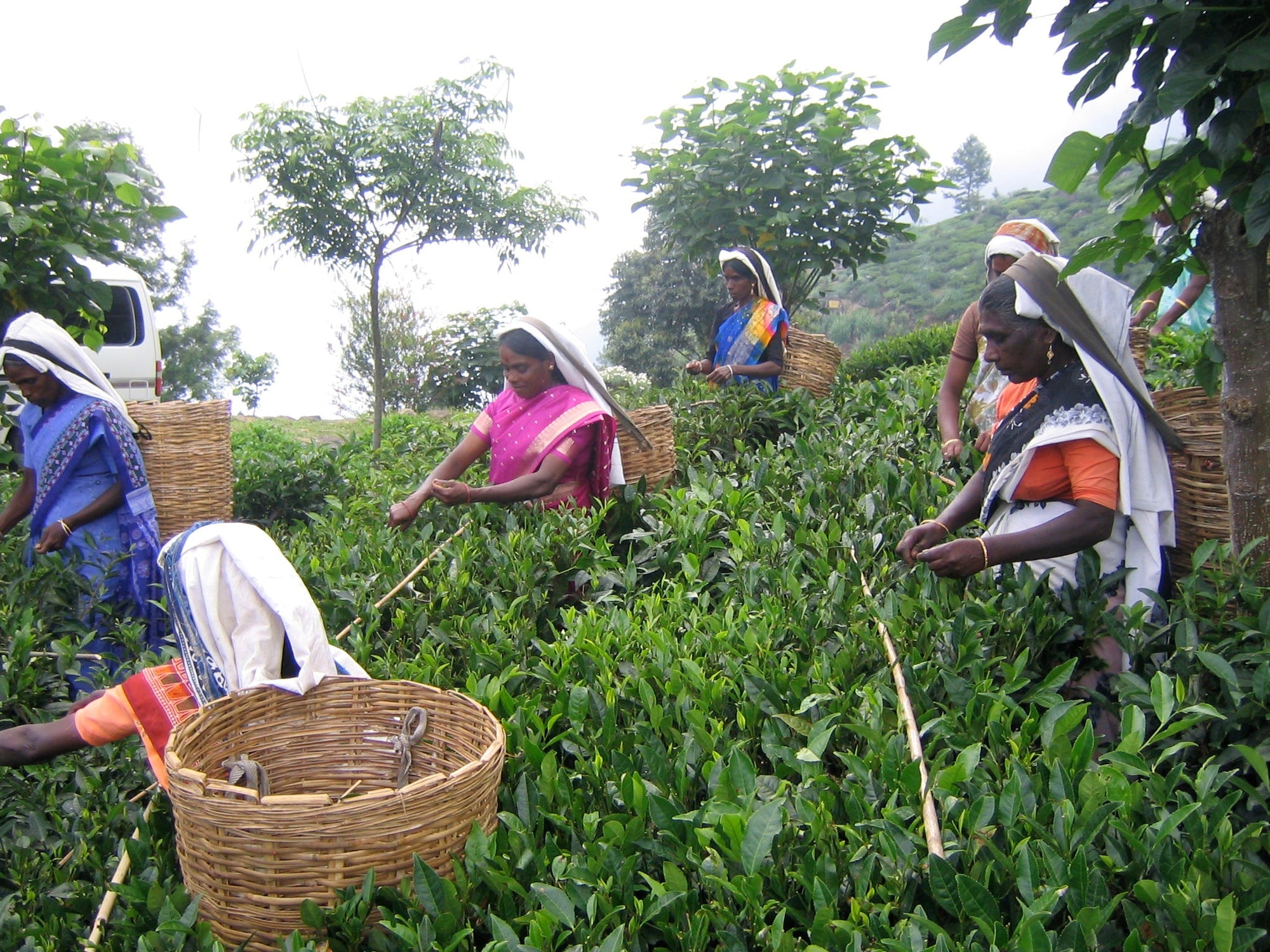We’ve said it before and it still stands true -- not all tea is created equal. This is for many reasons: the quality of the ingredients, the methods of cultivation, and the processes it undergoes from soil to cup, to name a few. When it comes to sharing the highest quality tea imaginable, we at Magic Hour always ensure that each of our offerings are cultivated with care, intention and the utmost craftsmanship.
What does this mean?
We're sure you've heard of labels like “natural” or “organic”, but there is one that surpasses them all, and that is “biodynamic”. Let’s explore more about this process, what makes it so special, in so many ways, and why it has become the Gold Standard.
What is Biodynamic?
According to the Biodynamic Association, “Biodynamics is a holistic, ecological, and ethical approach to farming, gardening, food, and nutrition. Biodynamics is rooted in the work of philosopher and scientist Dr. Rudolf Steiner, whose 1924 lectures to farmers opened a new way to integrate scientific understanding with a recognition of spirit in nature. Biodynamics has continued to develop and evolve since the 1920s through the collaboration of many farmers and researchers. Around the world, biodynamics is alive in thousands of thriving gardens, farms, vineyards, ranches, and orchards. The principles and practices of biodynamics can be applied anywhere food is grown, with thoughtful adaptation to scale, landscape, climate, and culture.”
You can think of biodynamic farming as being “Beyond Organic”. While organic practices are chemical-free, the tea (or crop) may not be as fortified as from a biodynamic source, due to the higher polyphenols and antioxidants made available to the plants through highly nourished soil developed in biodynamic farming. And biodynamic certification is reserved for only the most rigorous standards worldwide. It also excludes the use of any synthetic fertilizers, and instead uses natural manures and composts to strengthen the health of the soil, while focusing on a “whole system” approach. Its practices are inherently regenerative, where the work of planting, nurturing, and harvesting creates a loop of love that supports the health of our planet and our people, including the communities who work in the lush tea fields we source from, specifically. Perhaps most exquisite of all, biodynamic practices also connect with the cosmos - with planned astrological sowing of seeds (like with the moon phases and planetary motion), and utilize certain herbs or even crystals to mystically charge the soil and enhance its abundant offerings. How cool is that?!
The True Magic Behind Magic Hour
We have a personal connection to biodynamic practices, as our Mistress of Ceremonies, Zhena Muzyka has been supporting biodynamic farming (and gardening) for years. We source our Magic Hour teas from biodynamic gardens as well, one in particular stewarded by Gnana, our Sri Lankan tea manager. The pristine Idulgashinna Bio Tea Garden is perched above a wildlife preserve in Haputale and is cared for by true angels incarnate. This exquisite garden became the first biodynamically certified tea estate in the world, in fact, and it is where Zhena and her husband Gerard were married some years ago! It is also where Gnana first shared the power of this farming method to heal the soil and produce profoundly better teas with Zhena, and we have never looked back.
When the soil is vibrantly alive and well cared for, plants can withstand any disease; with a glowing vitality that is palpable. There, Gnana and his team fertilize the soil with organically grown herbs like yarrow and chamomile, and add ground quartz crystals to boost the tea leaves’ levels of silica, a nutrient with cancer-fighting attributes. Instead of pesticides, Gnana lures pests away from the tea brushes by a perimeter of colorful flowers and honors the profound poetry of the earth in all that grows there, while supporting and nourishing our precious pollinators. In many ways, biodynamic farming is a true honoring of the sacred, and its reverence in practice is beauty personified.
Zhena became so passionate about Gnana, his garden, and the growers there, that she helped build schools and social programs for the local community. Regenerative practices are not simply meant for the soil by reducing CO2 (though that is certainly a huge part). Regenerative farming methods also support the tea workers (who are mostly women and mothers) with fair wages, maternity leave, healthcare and education for their children, which enhances every aspect of this labor of love. To be regenerative is to be renewed and restored in all facets, and we are truly honored to be intrinsically linked to this process.
Our Forever Promise
Creating a direct relationship with our tea growers has become a deep, core value of our business - we buy from growers we know. Period. And this has become a major differentiator between our brand and other companies, who rarely know where things come from when they package and sell it to you. The rhythmic, complementary energy of collaboration is the essence of biodynamics: love made evident with soil and grower, flower and field, tea maker and consumer, where all elements and soul harmonize. It looks at the whole garden as part of the universe; a microcosm of the macro, aligning the plants (and people) with the planets.
We are so proud to be a company who stands for thoughtful, heartfelt practices.
We are proud to be woman-owned, woman-empowered, woman-sourced, and woman-operated.
We are proud to help women and children receive the dignity and care they deserve in developing nations through our careful sourcing and dedication to fair trade.
We are proud to uphold the ideals and standards that protect and nurture our Mother Earth and all who comprise her magic.
Now that, my dears, is tea made with LOVE.


